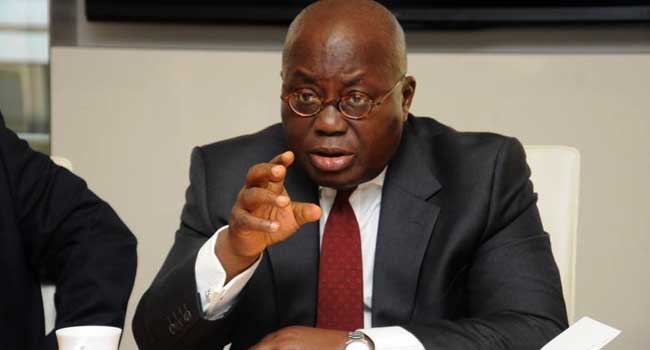Africa
Ghana stops making some of its foreign debt payments

As part of a deal with the International Monetary Fund to restructure its debt, Ghana stopped making payments on some of its foreign debt on Monday (IMF).
With more than 50% inflation and a big drop in the value of the cedi because of the world pandemic and the Ukraine crisis, the West African country is in the middle of an economic disaster.
In a statement, the finance ministry said, “Because of this, we are suspending all debt service payments for certain categories of our external debt until we can figure out how to restructure them in an orderly way.”
According to the statement, “This suspension will encompass payments on our Eurobonds, commercial term loans, and on the majority of our bilateral debt.”
But the government said that payments on international debt, new debt (whether multilateral or not) acquired after December 19, 2022, or debts related to certain short-term trade facilities would not be stopped.
The statement read, “We are also reviewing specific debts relating to projects with the biggest socioeconomic effect for Ghana, which may have to be removed.”
Debt problems: once regarded as a favourite of investors, Ghana has recently battled with its debt load. In order to pay off its debt, the government uses more than half of its revenue. Just this year, the collapse in the cedi raised the value of debt by $6 billion.
The government said that stopping payments on the country’s foreign debt was a temporary emergency measure until the country’s creditors could come to an agreement.
It also promised to work with all of Ghana’s foreign creditors to get Ghana’s debt under control.
Daniel Anim Amarteye, a Ghanaian economist, said that the government’s action would cause investors to lose faith in the economy.
Amarteye told AFP that “it could harm our credibility in the eyes of the investor community globally and our ability to go to the market in the near future.”
The international rating organisations will further degrade as a result of this action.
Ghana’s debt has been downgraded by three important international rating agencies because investors are worried about the country going bankrupt.
“The ministry hasn’t spoken to creditors yet. Another question is whether or not they will accept the terms set forth by the ministry of finance. We are navigating incredibly challenging terrain,” he continued.
Ghana and the IMF reached a $3 billion financing agreement last week to help the country with its economic woes.
Even though the board of the fund hasn’t given the three-year loan its final approval yet, the program’s goals are to lower inflation, boost market confidence in the country, and make the economy more resistant to shocks from the outside.
Ghana, a major producer of cocoa and gold with oil and gas potential, has a high debt load and, like the rest of sub-Saharan Africa, has been severely impacted by the COVID outbreak and the Ukraine war.
The 30 million-person West African country is experiencing societal unrest as a result of the economic problems. People have taken to the streets to protest rising costs of living, and the opposition has called for the finance minister to step down.
As experts forewarned of a default on debt payments, the crisis compelled President Nana Akufo-Addo’s administration to change its stance earlier this year and request assistance from the IMF.
In order to ease a payment constraint, the government has already proposed a domestic debt exchange. Soon, information about restructuring international debt was anticipated to be made public.
AFP
